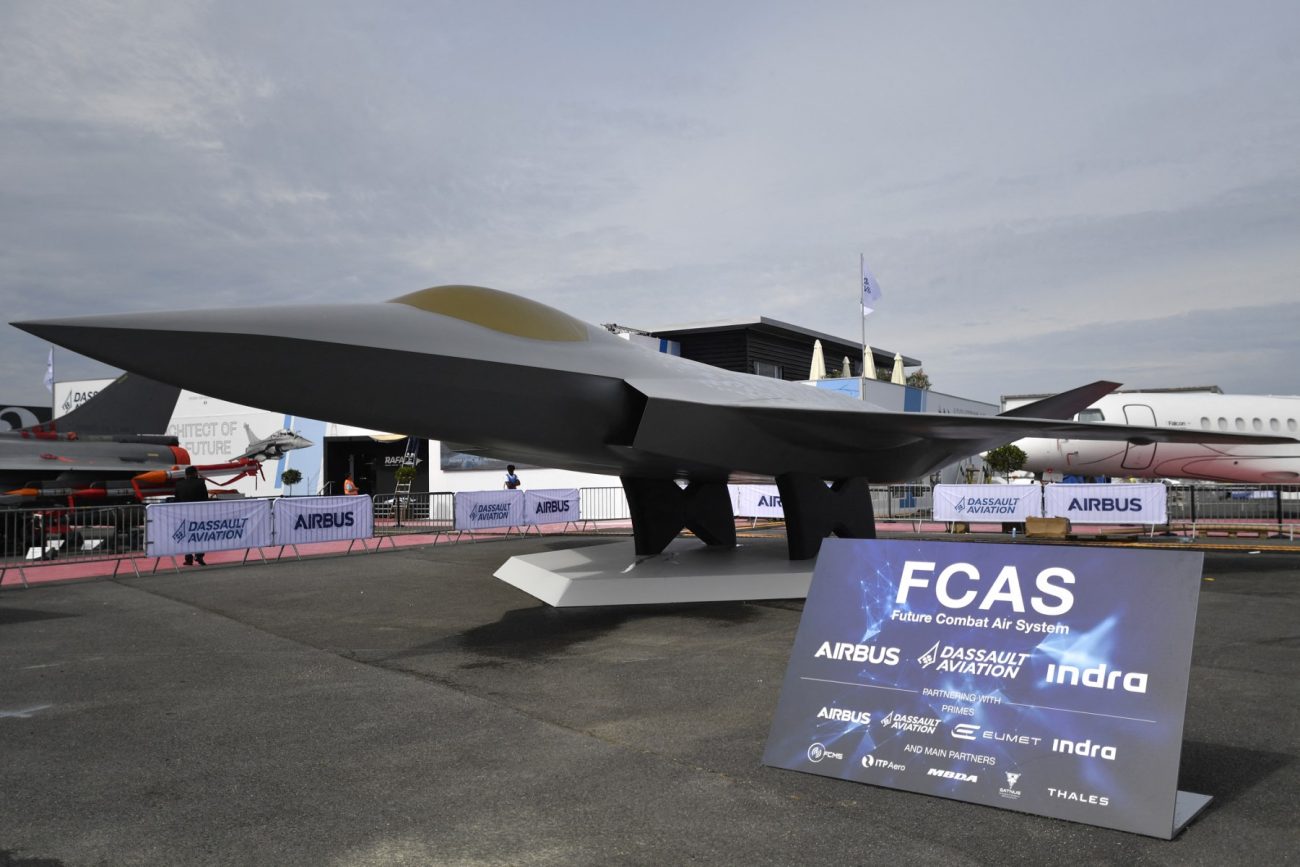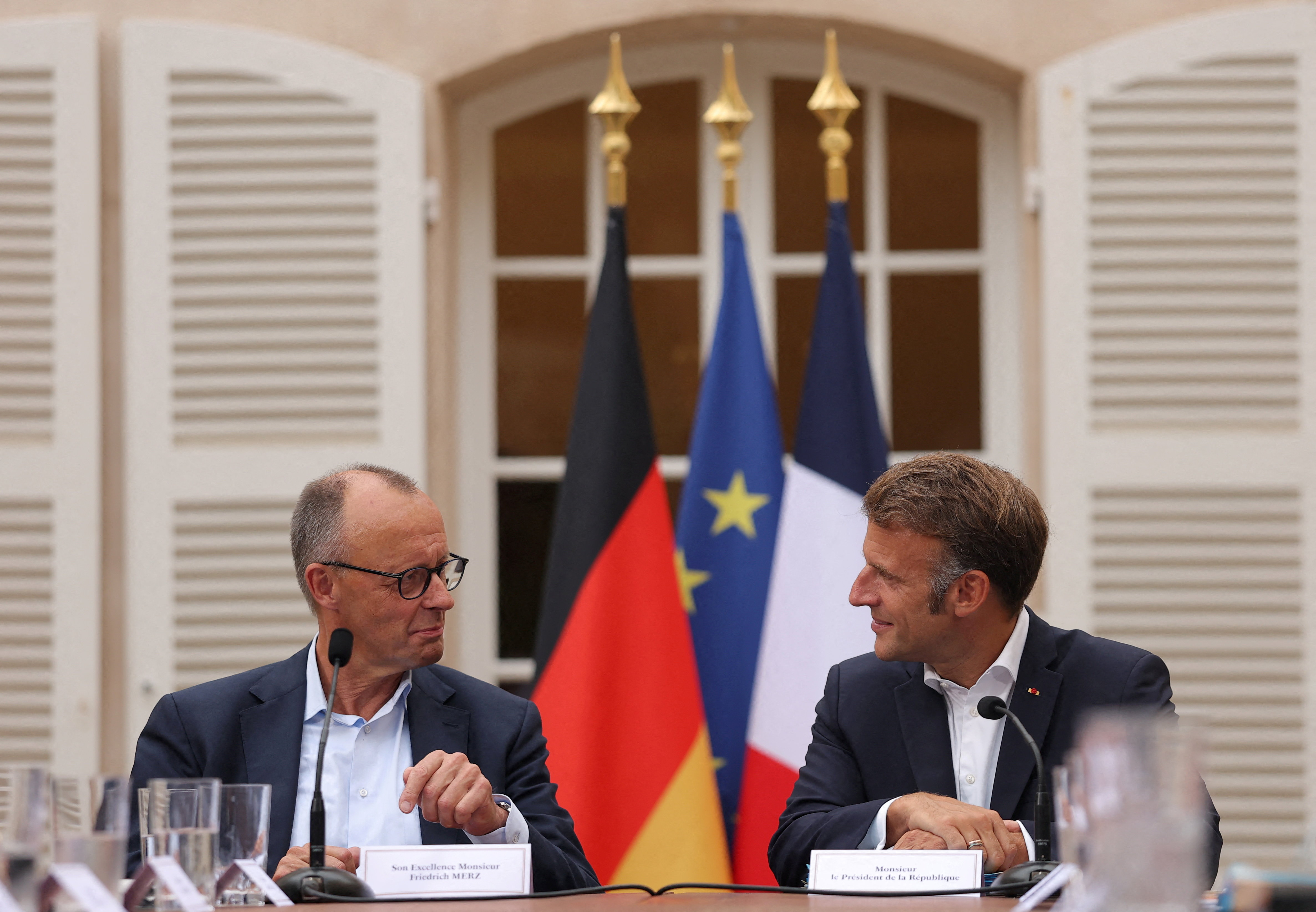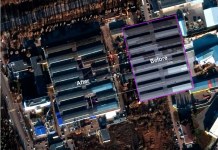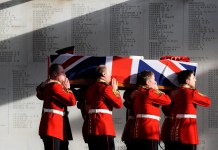Is the major Franco-German military project —the Future Combat Air System (FCAS) fighter jet program, a next-generation fighter jet with a network of drones—in peril?
This question is becoming increasingly relevant because of France’s current political instability, marked by repeated government collapses and a deeply divided parliament, on the one hand, and German leaders, including some ministers, considering alternatives in collaboration with other European nations, such as the United Kingdom, on the other.
It is not that there were no differences between France and Germany on the nature of the distribution of work in the FCAS program before France’s present political impasse. But the gridlock has now led to apprehensions not only in Germany but also across Western Europe about whether it is wise to pursue long-term projects with a country like France, which has revolving-door ministries, a murky outlook for financial stability, and an increasingly weak President in Emmanuel Macron.
The very fact that the French government has collapsed repeatedly, forcing President Macron to appoint four prime ministers within 15 months, the last of whom, Sébastien Lecornu, resigned after less than a month only to be reappointed with promises on unaffordable economic measures that could seemingly add to France’s ballooning debts is making the rest of Europe doubt that France can be trusted on its comitments.
Against this background, the fate of the FCAS program that has two major partner countries in France and Germany, and Spain as a minor partner (Belgium is currently an observer country and has expressed its intent to become a full partner in the program in the near future) is now under increased scrutiny by experts.
And it is particularly so after German Defense Minister Boris Pistorius issued an ultimatum, calling for a decision by the end of 2025. He warned that, without a clear commitment from all three governments to the joint Franco-German-Spanish FCAS warplane project, Germany would withdraw.
“I’ll talk with my counterparts as soon as there is a French government,” he said. “The Chancellor and I are in full agreement that there needs to be a decision by the end of the year… Otherwise we will pull the plug.”
It may be noted that defense ministers from the three partner countries, Germany, France, and Spain, were due to meet in Berlin in October to chart a way forward. But with France’s government in a tailspin, the timeline to resolve the industrial rift between French and German partners looks uncertain.
Frequent reshuffles of the French ministry are said to be creating problems. For instance, Lecornu had been France’s minister of armed forces until he was appointed prime minister in early September.
This month, he first tried to name Bruno Le Maire, who spent seven years as finance minister presiding over the country’s worsening economic situation, to be the next defense chief. Now, after his resignation and return, Lecornu has named Catherine Vautrin, a former labor and health minister and onetime insurance company executive with no prior experience in defense or security issues, to oversee the military.
It is said that joint initiatives depend on personal ties, and that is very difficult with the high turnover on the French side. In the case of FCAS, German Defense Minister Pistorius had built a strong relationship with Lecornu before Lecornu left the job. Now, establishing a close rapport with a new French minister will take time, and that, in turn, could delay decisions on joint projects.
Frequent reshuffles of the French cabinet have also raised doubts about the country’s defence budget and the consequent financing needed for the FCAS.
According to Armida van Rij, Senior Research Fellow at the Centre for European Reform, France’s political crisis is bad news for European rearmament efforts.
“As long as there is political instability, discussions on the country’s budget, including defense allocations, will continue to be held hostage. The opposition parties have no incentive to work with any new government. They believe the prolonged instability increases their chances in the 2027 presidential elections”, he pointed out.
As he explains, the spending limits for 2026 had earmarked €6.7 billion ($7.8 billion) for defense, an extra investment of €3.5 billion ($4 billion) over pre-existing allocations to help modernize the French armed forces and fund capability gaps, including ammunition stock, drones, electronic warfare capabilities, and more.
The proposed increase may not be sufficient—but it is necessary. But now, it appears uncertain in an opposition-controlled French Parliament. This financial uncertainty risks stalling France’s rearmament efforts, including funding for major projects.
Here, the €100 billion ($116 billion) fighter jet project (FCAS) is considered a prime project, seen as vital to Europe’s defense as a whole in the wake of recent uncertainties over the American commitment under President Donald Trump. In fact, the FCAS is seen as a showcase of “European strategic autonomy”.

This project aims to develop a next-generation fighter jet, a swarm of drones, and a “combat cloud” network. But then, some serious differences between France’s Dassault Aviation and Germany’s Airbus Defence and Space over the project’s leadership roles, workshare, and technical specifications pre-existed the political impasse in Paris.
France wants the overall leadership status in the project, which Germany is not prepared to accept.
The “primary pillar of FCAS” is said to be the New Generation Fighter (NGF). The development of this combat aircraft is under the lead of Dassault Aviation, the French aerospace company that currently produces the Rafale.
Dassault sees the NGF as the “heart” of the FCAS around which other pillars are arranged. Yet, after Spain joined FCAS in 2019, Airbus Spain was designated as its national contractor for NGF (Airbus also being the German national contractor here), putting Dassault – in its view – in the uncomfortable position of leading the pillar while being a minority partner that could be outvoted by its two Airbus counterparts.
The principal German contractor of FCAS – Airbus Germany – leads work on its second pillar, the Combat Cloud, a decentralized, distributed, and delegated information-sharing, command-and-control system meant to integrate sensors, responsibilities, and weapons.
It is intended to be platform-agnostic, combining manned and unmanned systems, satellite and aerial surveillance, and potentially ground- and sea-based platforms, whether developed through FCAS or otherwise.
A third pillar comprises remote carriers—“heavy” (reusable) or “light” (single-use) unmanned vehicles that operate in conjunction with manned platforms. While Airbus is designated as the lead contractor, the French division of MBDA is tasked with the “light” carrier.
Dassault argues that the NGF is FCAS’s “heart”, and, therefore, the other pillars – remote carriers and the Combat Cloud – serve to enhance the fighter on which the whole project rests.
For Airbus, however, FCAS represents “The Future of Battle Management” and “does not necessarily have a fighter plane as its core”. Germany is said to be in favour of integrating the existing non-FCAS systems it uses, such as the Eurofighter (Airbus) and F-35 (Lockheed Martin), into the FCAS cloud.
Furthermore, several of the German defense sector’s key players, not least a budding drone start-up industry, are thriving air systems producers eager to prove their worth. Thus, for Germany, the Combat Cloud and integrated battle management architecture form the cornerstone of FCAS more than the NGF itself.
France’s reaction is that if the differences are not resolved, it can proceed alone with building a fighter if necessary, though it would likely still involve a European network of subcontractors.
On its part, Spain would like France and Germany to resolve their differences.
“Everybody has a responsibility that this project becomes successful,” José Vicente de los Mozos, CEO of Spain’s premier defense firm, said the other day, adding that Europe needs a sixth-generation fighter jet – and the Future Combat Air System (FCAS)“has to happen.”

Another Point Of Contention
Incidentally, France and Germany also differ on another joint project, the Main Ground Combat System (MGCS), regarding the tank’s design, technology, and industrial responsibilities.
It is a project to create a new generation of main battle tanks, succeeding the Leopard 2 and Leclerc. Each of these tanks is supposed to be a “system of systems” that includes a future main battle tank, surrounded by a network of other combat systems, such as artificial intelligence for decision-making, advanced sensors, robotics, and onboard unmanned aerial vehicles.
Here, the principal difference between Paris and Bonn is that while the former favours a lighter tank for global deployment, the latter prefers a heavier, more heavily armoured tank suited for a potential conflict with Russia.
Of course, as in FCAS, there are also political and budgetary tensions over which country’s industry should take the lead.
It may be noted that since the end of World War II, France and Germany have had what experts say is strategic divergence. While Germany has promoted its robust economy and relied on the U.S.-led NATO for its defense, France has believed in strategic autonomy and maintained more deployable, experienced military forces.
France views its independent nuclear forces as a core component of European security, but has deep disagreements with Germany and other allies over the future of a joint nuclear deterrent.
Similarly, there have been transatlantic differences, with Germany opting for U.S.-made F-35 jets with nuclear-sharing obligations, something France would not be willing to share in the FCAS project.
Of course, European ruling elites want a functional Franco-German partnership that is essential for Europe to maintain stability, drive economic progress, and project geopolitical influence amid perceived Russian threats, particularly during the prevailing period of uncertainty about American support.
They would love Paris and Bonn to iron out their differences over the “European programmes” like FCAS and drive away the factors of unyieldingness and unreliability. For that, they want a quick return to political stability in France, something that does not look promising at the moment.
- Author and veteran journalist Prakash Nanda is Chairman of the Editorial Board of the EurAsian Times and has been commenting on politics, foreign policy, and strategic affairs for nearly three decades. He is a former National Fellow of the Indian Council for Historical Research and a recipient of the Seoul Peace Prize Scholarship.
- CONTACT: prakash.nanda (at) hotmail.com




